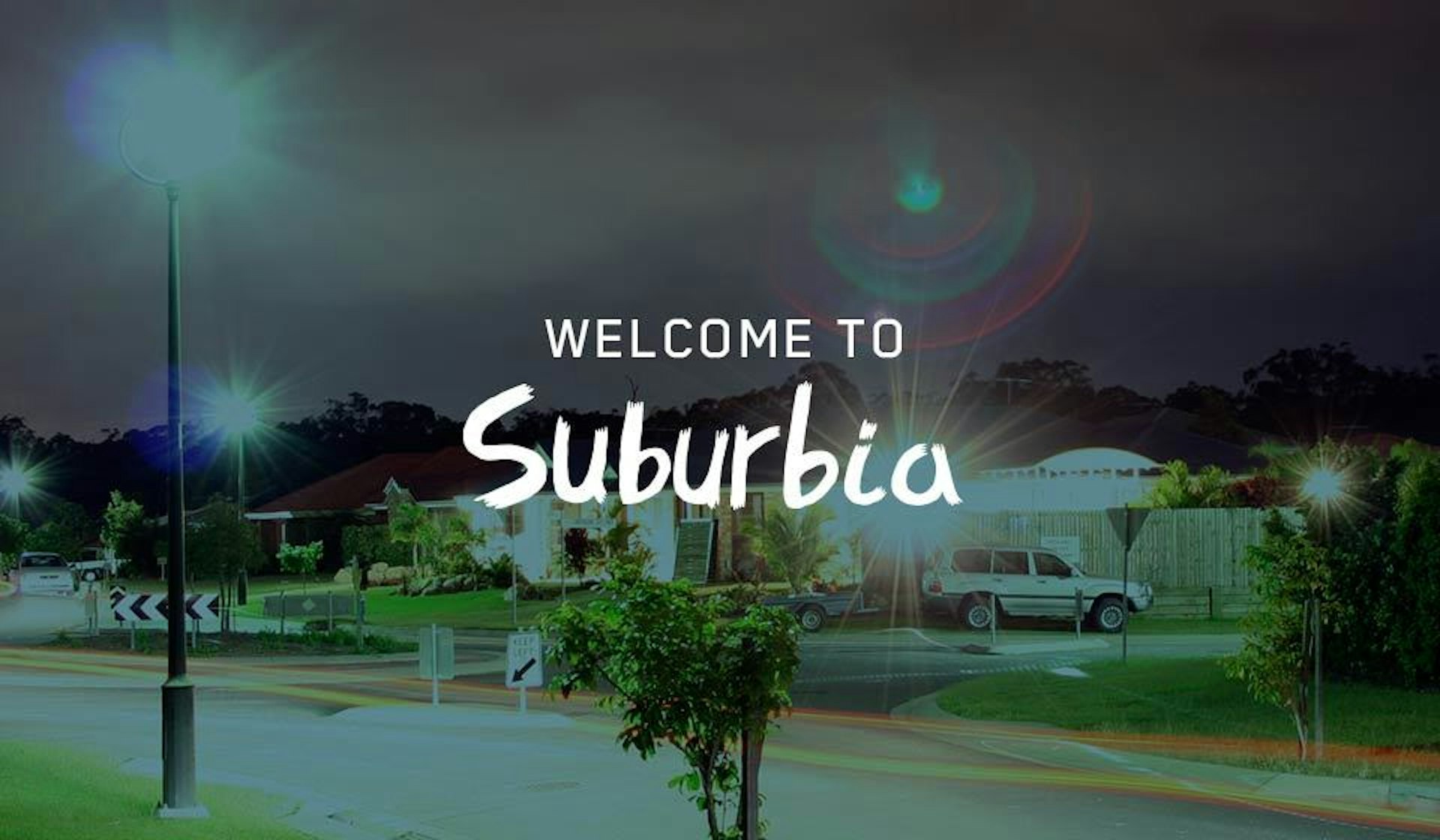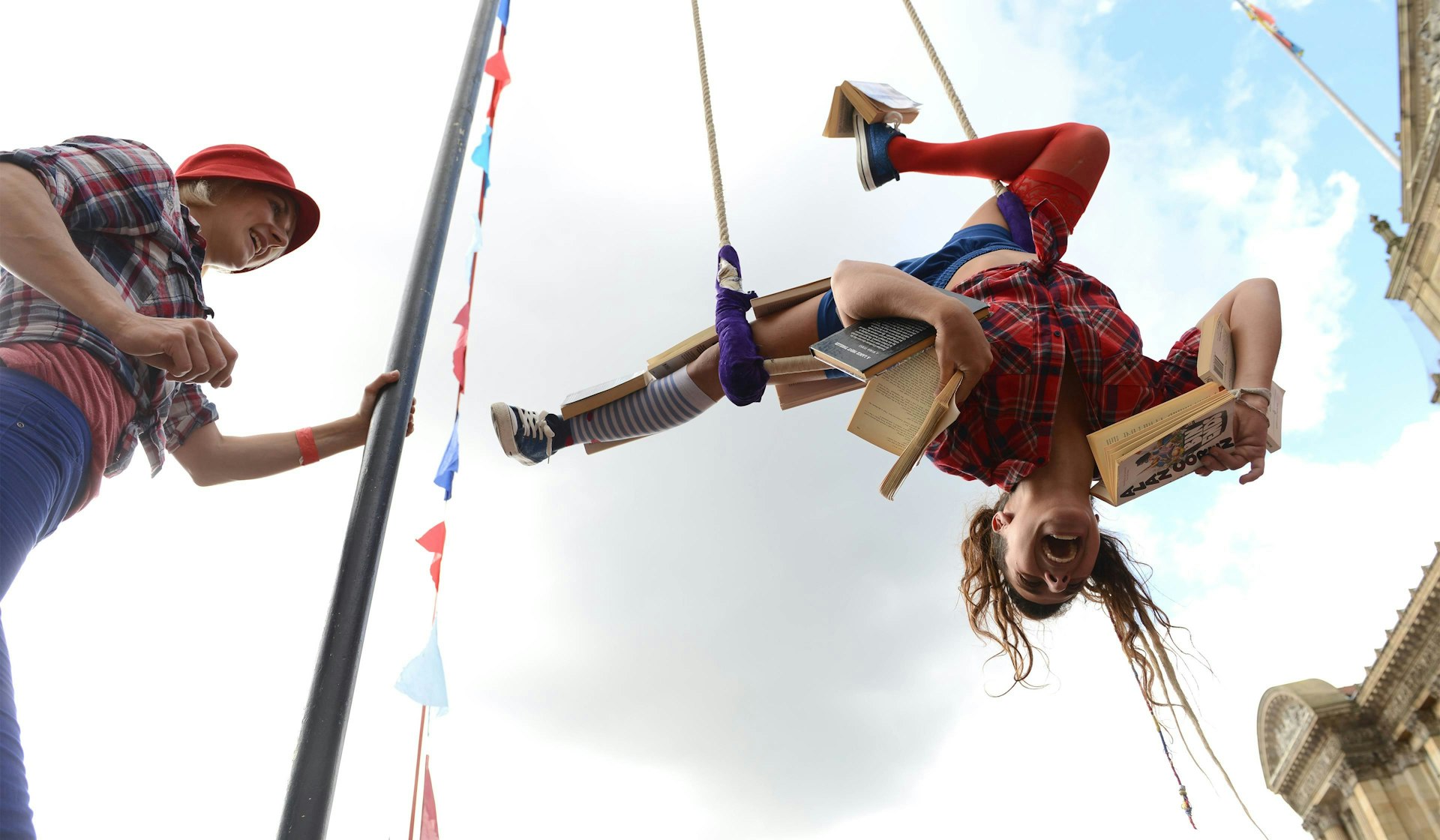
The Haunted Spirit of Suburbia
- Text by Aaron Fagan
- Photography by John Harvey
The old have tried to control the young throughout history because the young represent the future. While the youth would often fight back and try to create a world separate from their parents, there was a clear line between childhood and adulthood. A byproduct of the invention of suburbia was a new understanding of how kids come of age.
William Levitt is noted as the man who changed the way Americans live and ushered in an age of suburban existence. Levitt’s affordable, identikit houses with standardised floor plans were not unlike the automobiles rolling off assembly lines. Suburbia gave rise to the standardised educational system of the public school, where children, too, rolled off the production line into the arms of the Mad Men who had recently invented the idea of “teenagers” as consumers.
Enmeshed in the growth of suburbia is the idea that “a good citizen is a good consumer”. Dissent was immobilised through an indoctrination of the young into a culture of things. Teenagers were marketed to directly, and this bright idea from the marketing executives of Madison Avenue – the youth-marketing model – soon spread around the world.
Today, Occupy Wall Street, student protests from London to Santiago, and other forms of youth rebellion continue to grow across the globe and all share a common goal: a recalibrated and more positive vision of a future that exists beyond the next commercial break.
The suburban experiment – and the belief that the American Dream was the promise of an egalitarian society feathered by material prosperity – has become tarnished by the failures of late capitalism, and much of its initial promise has become lost in translation.
But for all of its shortcomings, suburbia has offered us new ways of seeing in the arts. New Brow and DIY apply not only to the visual arts, but all arts that work with subjects, ideas, and materials the culture at large has discarded or ignored.
Below you are invited to engage with some contemporary poetry, an art that has itself been dismissed by the culture at large, and is therefore uniquely situated to give voice to the haunted spirit of suburbia, the inner condition of being of its feral offspring: alive, awake, and attentive to this world of distraction.
Portrait of Young Suburban Male as the Wild Boy of Aveyron by Bridget Lowe
As a teenager he would touch girls in their sleep.
Their bodies gave off some kind of heat
he sought.
His hands were dumb instruments
as he put them underneath their acrylic nightgowns,
compasses and protractors, things
bought to start the seventh grade
but never used to measure anything.
He would feel the ridges of their ribs
as he dragged a fingernail lightly across the skin
then down to the new hair
which he took as proof that everyone
was an animal somewhere.
Then in the morning he would wake for school
and the moon would be gone.
From At the Autopsy of Vaslav Nijinsky by Bridget Lowe (Carnegie Mellon University Press, 2013). Read more of Bridget’s work at her website. Used with permission of the author.
Centaurs in the Turnpike Woods by Peter Mishler
They speed away
in their rental cars
at night, leaving
the woods bare
and crackling
with their discharge.
I have seen the centaurs
using the light
from their phones
to shave among
the scrub pine.
If they hear
the touch
of a hand
on a windowsill,
they will zip up
their toiletry bags
and cower back
to their champagne-
colored sedans.
They are difficult to see
in their navy blue suits
as they shift
through the trees.
And the earth sips,
when no one is watching,
the foam from the mouthwash
and lather they leave
in the dark with the flowers.
Peter Mishler’s poem was installed at the historic Landmark theatre in downtown Syracuse, New York. Read more of Peter’s work here.
Poems by Aaron Fagan
Echo Train
A glorious dream! though now the glories fade.
Goethe, Faustus
Committed to a toy machine aboveground,
I can no longer see the more the past drains
Over and into me as it would a tool to cut.
It lends to the expression: Pass forth, freely.
Hearing out an estatescape of smiles and
Coordinated handshakes, nodding to recover
And depart to return, giving off its pangs,
And its collapses, and its releases—a bundle
Of luck we try to embrace the passage of—
A fountain of youth takes up a collection
Pool, in medias res, when the work of drafting
A policy in the marsh is done. The feeling
Of the forward, irrevocable flow of time
Is a fluke. I was once an insane asshole, too.
Distant future, distant past—overall, these
Are the same. Time’s arrow is a heart: the
Length from the tip of the hand to the heart.
Not all of us will have to learn the French for,
“No, black holes are not about to de-story us,”
But this bit is about the width of an avocado
On the moon, as seen from earth. It’s not
Always this way. Depending on the days
My shoes will last a day. Maybe two days.
I wake to go out to say hello to the grasses
I weave. And people and the dirt. I rub
The dirt in my hair. Indoors, you told me
To put water on some carrots and I obeyed.
Another thing I couldn’t quite explain.
Reason in the canary wavers. You will be
Learning more. Lightning spits back. Imagine,
Floating there, hypnotizing a pocket square,
Having it do whatever you want it to do. You
Can have it escape from a jar. You can have it
Change color, dissolve a knot and more:
Appear and disappear, in and out of somewhere
And nowhere. With beautiful, pathologically
Suspended disbelief, we can be cheap enough
To burn out in a festival of panic over eternal
Nutrition. Or, though our deeply flawed ideas
Persist, we can unveil what an array has led us
To be so allergic to our space and our time, and
It must lie a helpless log upon the waves.
Yes
To the snow that fell earlier today
And kept me from diving inside,
Where yesterday is a warm country
Thousands of miles away from here—
Footprints get me giggling about how
Temporary all of my arrangements are
And that my feet are adding a few steps
Against the idea that I am a spare part
Of this day I am too scared to live in.
And, Yes, because it feels special to feel
Like nothing special, and in particular,
In boots, on a sidewalk, late in winter.
Pretending To Surf In The Living Room
I was turning the knob through the channels
On our first color television when I came
Across one of those beach movies with girls
In bikinis gyrating, winking, and smiling
In ways I had never seen in my life before.
My mother was doing laundry in the basement.
When she came upstairs to find me standing
In front of this scene she said, “Oh, I love
These old Frankie Avalon movies!” And that
Was that. She left and I went back to being
Puzzled over what humans are famous for.
Splice
Watching
The moon
Above two
Actors on
Television,
I wonder,
With no one
To turn to,
If I watched
The moon
The night
The moon
Was filmed.
Aaron Fagan is the author of Garage (Salt, 2007) and Echo Train (Salt, 2010). Find out more about Aaron’s work at his website.
